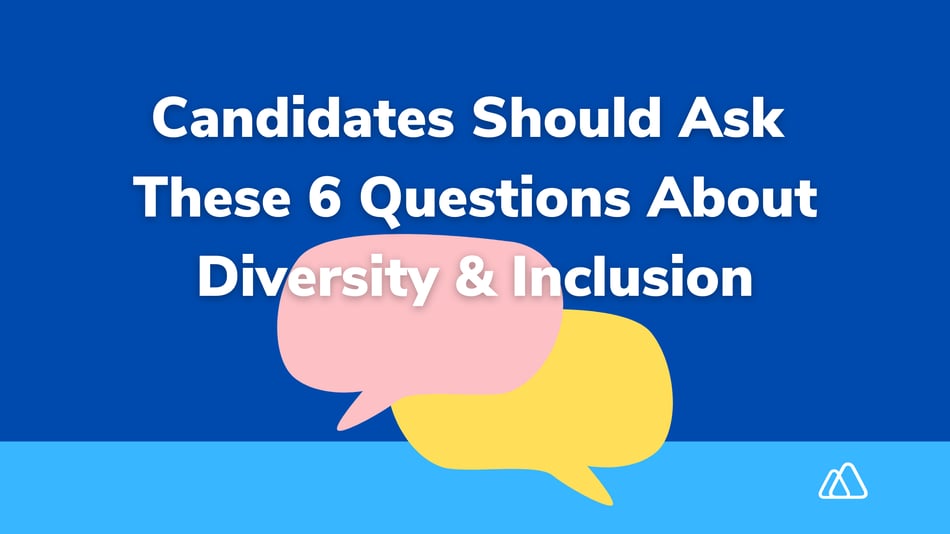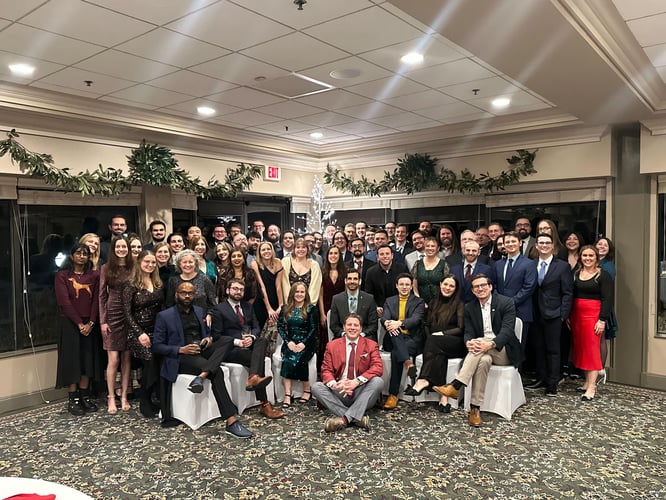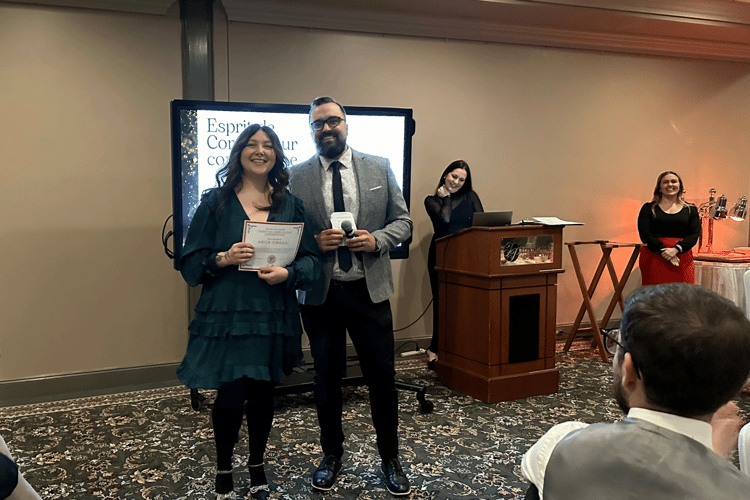Diversity, inclusion, equity and belonging. It's something many startups and tech companies say they value and are actively working on. But the truth is, not all of them are walking the walk.
Figuring out a company's real work culture can be challenging, especially when you're interviewing remotely and can't witness the office and the team in person. And when it comes to diversity and inclusion, it can be especially hard to tell if a company is just saying they value it because they feel like they have to.
So how can you, as a candidate, identify diverse and inclusive companies? Here are some tips.
6 Questions Candidates Should Ask To Discover Diverse & Inclusive Companies
1. "Where do you stand on diversity and inclusion?"
Don't be afraid to ask employers up front about their position on diversity and inclusion. This way you can see where they are in this process. Are they just starting? Have they created a plan? Even if they are just starting, it’s important that they’re thinking about it and committing to change.
Dan Green, Talent Acquisition Manager at Avionos, said at the Diversity & Inclusion panel back in June: “Be honest, open, blunt. Most interviewers appreciate that. Because the interviewer is of course looking at candidates on a talent level but also on a people level, too."
2. "How are your company values lived out?"
Most companies have their values on their website. Dan Ngoyi, Director of Talent Acquisition at Rock Central, suggests you take the time to look through company values and see how fleshed out they are. Also spend some time looking at their social media to see how often the company is having these important conversations, how committed they are. Ask hiring managers to show concrete examples of how their values are lived out in real life. If they say they value work/life balance, you should ask about the PTO policy and how often employees use it. Same goes for diversity and inclusion. If they say they value inclusion, ask, "How does the company make sure Black folks are valued, included, and know they belong at the company? Give concrete examples."
3. "Which employee stories and voices does the company highlight or amplify?"
Many companies share employee stories about life at that startup or tech company. Is the company only highlighting male voices? What about white voices? The kind of story that the company is crafting through their employees sheds a lot of light on their inclusion practices.
4. "What is the company's commitment to community engagement and social impact?"
Many tech companies say they are community-oriented, so make sure you ask about community engagement. Does the company often give back to the community? How? Does the tech company support local Black tech initiatives and organizations?
Discover and get connected with purpose-driven companies. Join the Purpose Jobs talent community and apply for open jobs at the best startups and tech companies in the Midwest.
5. "Can you show me your C-suite?"
“Employers can show you better than they can tell you,” Kendra Mitchell, Chief of Staff at Duo Security, said at the panel on diversity and inclusion. Kendra is also the winner of the 2020 Midwest Purpose Award for Diversity & Inclusion. She suggests you look at their leadership team. Is their executive leadership diverse? If so, that will tell you a lot. Corporations make changes to their language that once had racist undertones, and that’s great they're working on it. But as Kendra said, examples really matter: “Show me your C-suite. Let me see your board.”
6. "Where are you specifically on your D & I plans?"
Don't be afraid to get really specific about what a company is doing to foster equitable practices throughout the employee life cycle. It's okay if a company is just starting out. What matters is that they recognize the issues, have a plan, and are actively committed to making progress. Not just in hiring more diverse candidates, but in creating inclusive and equitable spaces where Black folks feel like they really belong.
Bonus Tip: Be deeply suspicious of anyone who talks about culture fit.
Kendra warned that companies often use "culture fit" in a negative way. “Culture fit is a reinforcer of homogeneity and bias," she said. "At Duo Security, we think of cultural contributions in light of culture being something that’s living and breathing and becoming richer and more nuanced and complex as we all contribute to it and make it better and grow from it,” Kendra said. If the company uses the term "culture fit," ask what they really mean by that. Are they looking for someone who fits into one specific mold? Or are they open to a culture of many different backgrounds, races, genders, ideas and beliefs?
It can feel hard sometimes to ask these tough questions, but it's a great way for discovering a company's authentic culture and lived-out practices.
Looking for a job at an inclusive, purpose-driven company? Join the Purpose Jobs talent community to discover hiring startups & tech companies, and apply for open jobs.





.png?width=1600&name=Related%20blog%20articles%20(1).png)


.png?width=50&name=Erin%20Gregory%20(1).png)

